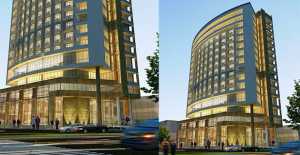- Stay Connected
Ethiopia among top 10 African countries with highest number of hotel rooms to be built in 2016

Addis Ababa, April 17, 2016 (FBC) – Ethiopia and Kenya are among the top 10 African countries with the highest number of hotel rooms to be constructed in 2016, thanks to a predicted growth in GDP and rising demand for conferencing and tourism facilities in the two countries.
Kenya and Ethiopia were ranked seventh and eighth respectively in a survey released last week by W Hospitality. Sixteen global hotels plan to develop 2,956 hotel rooms in Kenya, while 12 hotels are planning to develop 2,460 rooms in Ethiopia.
Nigeria and Angola were ranked first and second, with 10,222 and 7,560 rooms in the pipeline this year.
Kenya has fallen one position from last year, when Uganda was ranked 10th in a similar survey.
According to Trevor Ward, the managing director of W Hospitality, a global company providing advisory services for the hotel, tourism and leisure industries, Kenya and Ethiopia – specifically Nairobi and Addis Ababa – are important regional and African centers, with excellent air access, diversified economies, high GDP growth and good prospects for the future.
“There is a direct correlation between GDP growth and demand for hotel accommodation — more demand means greater opportunities for hotel development,” he said in a statement.
Nairobi and Addis also benefit from the dual commercial and political activities, as they host the United Nations and African Union headquarters on the continent respectively.
Najib Balala, Kenya’s Tourism Cabinet Secretary, said investor confidence is being boosted by a foreseen recovery in the tourism sector in the country.
East Africa is benefitting from a focus shift by hotel investors from North Africa.
“Markets in North Africa are more mature and have already seen much development, and investors are slowly regaining confidence after the political turmoil in Libya and Egypt,” said Najib Balala, Kenya’s Tourism Cabinet Secretary.
According to the International Monetary Fund forecast, economic growth in sub-Saharan Africa is set to increase by 4 per cent this year and 4.7 per cent in 2017, up from 3.5 per cent in 2015.
